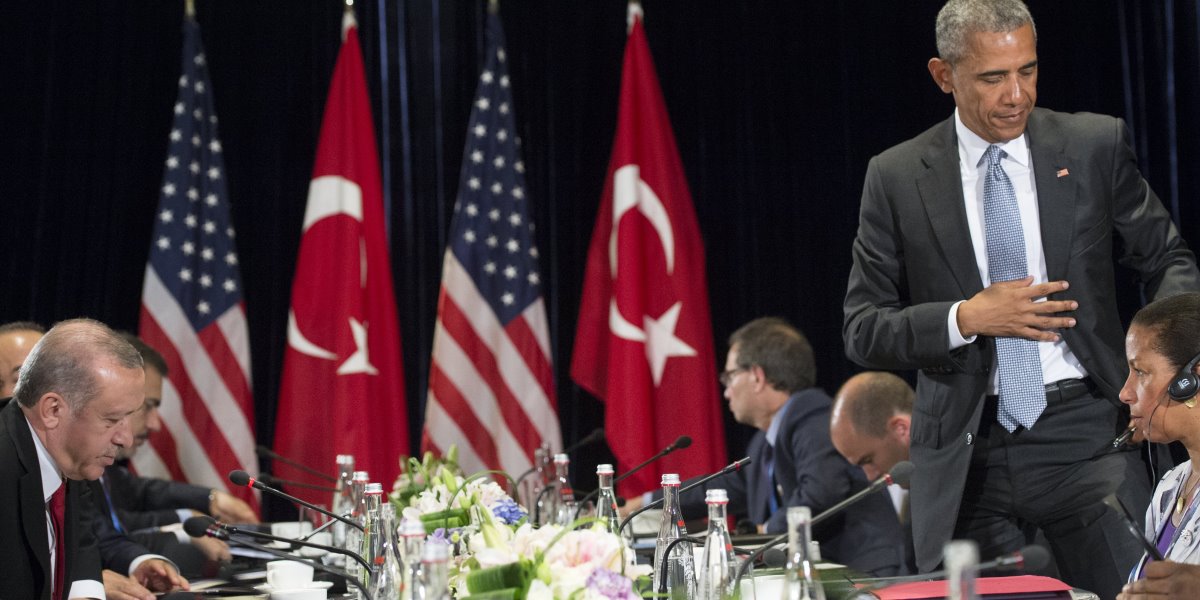As ever, we are nearing the completion of yet another long and controversial presidential race in the U.S., and all the global players are bracing themselves to see and adapt to the final outcome next week. While Hillary Clinton and Donald Trump use their last bullets over multifaceted accusations, alleged scandals and media frenzies, global analysts are busy producing alternative scenarios in an attempt to make projections on potential political and economic developments under Clinton and Trump presidencies. Public debates in Turkey are beginning to follow a similar pattern and explore the prospective implications of different electoral outcomes as far as the transformation trajectory of Turkish-American relations are concerned.
It is no secret that Turkish-American relations have been going through a rough period in recent months with a strategic divergence of interests in a number of critical foreign policy issues in Syria and Iraq, as well as a fundamental disagreement on the treatment of the Gülen Terror Group (FETÖ) following the failed 15 July coup attempt. Therefore, the features and political preferences of the new American president might give us useful clues to guess the trajectory that bilateral relations will follow in the near future following the elections.
When it comes to Clinton, pretty much everybody seems to concur her superior capacity in foreign policy-making was proved as an active Secretary of State dealing with sophisticated power games and Byzantine struggles in the Middle East and elsewhere. She also had intensive contacts with the Turkish diplomatic corps during Ahmet Davutoğlu's time as foreign minister and later as prime minister in an attempt to foster coordinated responses to critical developments in the Middle East after the Arab Spring. The fact that Clinton had a good rapport with the Turkish policy community might sound like a positive factor for her candidacy at first glance, but when we remind ourselves of the concrete outcomes of her collaboration then a gloomier picture emerges. Clinton was one of the major policy makers who misled Turkey's foreign policy line concerning Syria based on the false assumption that Bashar Assad's regime would swiftly fall. Ankara's game plan based on speedy regime change in Syria was produced on false American premises of comprehensive military-logistical support to moderate opposition forces. When the Obama administration, including Clinton for that matter, did not stay loyal to their initial promises and crossed all the red lines during the intensification of the war, it was Turkey not the U.S. that had to undertake the political and humanitarian costs of an escalating conflict.
That is why Clinton's openly expressing support for the People's Protection Units (YPG), the Syrian affiliate of the PKK terror organization conducting attacks in Turkey, in the Syrian war theater should indicate a lot. Despite Ankara's strong protests against U.S. engagement with the YPG, Clinton did not hesitate to declare her intention to deepen collaboration with the Syrian Kurds (read: YPG) if elected president. Then there is the key issue of the fight against FETÖ that orchestrated the failed military coup in Turkey on July 15 from their safe haven in the U.S. It is very well known that FETÖ sympathizers have actively supported Clinton since the inception of her campaign via financial and logistical support, and it would not be surprising to see Clinton trying to buy time to delay the extradition of Gülen, if elected president.
As far as Trump is concerned, his rude and discriminatory rhetoric, xenophobic and Islamophobic approach to social issues is obviously a major concern for Turkey's policy makers and society. Whether this tough rhetoric turns into real policy remains to be seen, but the image of Trump in Turkey is that of an unconventional politician with strong emphasis on culture and identity issues. However, memories of positive developments during the presidency of George W. Bush in Turkish-American relations during the heyday of neo-conservatism feed arguments that claim that only a Trump presidency might solve the present gridlock in bilateral relations; so it might not be such a bad scenario after all. Time will tell whether the continuation of a Democratic administration or transfer of executive power to the Republicans will produce optimal results for a major improvement in Ankara's relations with Washington D.C. But analysts will continue their scenario projections anyway.
[Daily Sabah, November 5, 2016]








